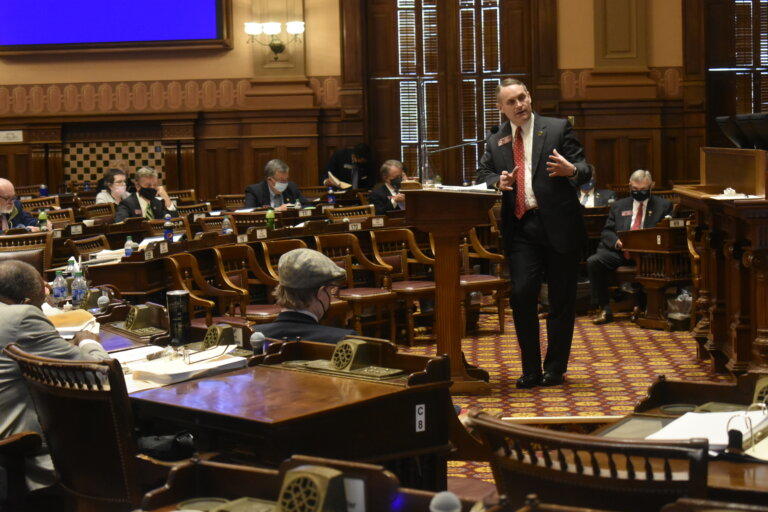
Caption
Rep. Ed Setzler pitched his bill to set rules for residents of long-term care facilities on the House floor, one of the fervently debated proposals left behind when the 2021 General Assembly gaveled to a close early Thursday morning.
Credit: Ross Williams/Georgia Recorder


